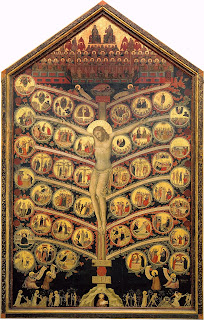Wednesday, March 14, 2018
Reading: 1 Timothy 2:1
"First of all, I urge
that supplications, prayers, intercessions, and thanksgivings be made for
everyone,…so that we may lead a quiet and peaceable life in all godliness and
dignity."
During the season
of Lent we use either the Great Litany
or the Kyrie, which is an Orthodox litany or ektenia, for the entrance rite. Litany is from the Greek, litaneia, meaning
"supplication". Luther developed litanies, both in Latin and German
(1529), based primarily on the Roman church's Litany of All Saints. This is the
form that we sing to open the liturgy during Lent. In 1544, Thomas Cranmer,
Archbishop of Canterbury, compiled and crafted The Exhortation and Litany,
which was the first liturgy in English, commissioned by Henry VIII. The liturgy
was used for processions, and was requested by Henry when he witnessed the poor
response of the people to the existing Latin processions. He decreed that there
were to be "set forthe certayne godly prayers and suffrages in our natyve
Englyshe tongue." Cranmer used part of the Sarum processional, Luther's
litany, and the Orthodox litany. It has come down to the present Book of Common
Prayer in much of its original form. Kyrie,
we pray, in both the Great Litany and the Kyrie. Kyrie eleison. Lord, have mercy. Kyrios was the Greek word chosen by translators to stand for the
Hebrew name of God: YHWH. When we pray Kyrie
eleison, we are proclaiming God as Lord, and putting our lives in God's
care.
- Pray the Litany.


